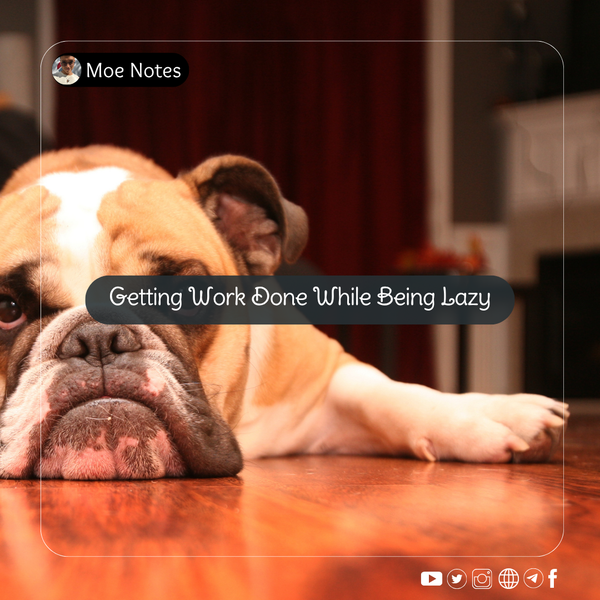Does a Degree Define Your Life? - A Journey Between Passion and Pragmatism

"A degree doesn't define your life. But the character you build while earning that degree will."
This article is also available in [Burmese]
I received a message the other day. It was from a younger sister who was lost, caught between her passion for the arts and the pressures of real Life and her family.
Her story is the story of so many of us. Getting into engineering because she didn’t meet the grades for medicine; not studying hard because she didn’t want to be her parents’ puppet; not daring to invest in her passion because she was afraid it wouldn’t succeed. In the end, she found herself adrift on a path she didn’t like, asking the question, “What do I do now?”
Today, let’s deconstruct this question together: “Does a degree truly define your life?”
Part 1: The Golden Cage of “Passion”
We’ve all heard the phrase, “Follow your passion." It’s a beautiful and incredibly seductive idea. But in the real world, this phrase can often become a “golden cage.”
- The Conflict of Multiple Passions: Like the person who messaged me, we can have many things we want to do. We want to open a bakery and a nail salon, and also become a world-famous singer. These are all passions. But can every passion become a profession?
- The Pressure of Success: Behind the idea of “making a living from art” always lurks the immense pressure to “succeed.” That pressure can slowly kill the joy you get from your passion, turning it into a job you hate. When I said, “Never go to school for something you love; you’ll grow to hate it under pressure,” this is what I meant.
- The Worries of Parents: Parents don’t object to your passion because they hate you; they do it because they love you too much. They know the harshness of the real world and want you to choose a safe path that ensures a stable and peaceful life. In their eyes, art is an uncertain and risky road.
Part 2: Deconstructing Your “Passion”
This is where we need to ask ourselves the most important question: “Am I truly passionate about the work, or am I just in love with the ‘outcome’ of that work?”
People often decide on their passion based on a superficial view, without any real-world testing.
- The Outcome vs. The Process:
- Do you want to be a “singer” who travels the world performing? Or do you genuinely love the “process” of pouring your feelings into lyrics, practising an instrument for hours, and singing the same line over and over to get it right?
- Most people see the first part—the “outcome”—and mistake it for passion. True passion is when the complex, tiring “process” itself is a source of joy for you.
- The Desire for Recognition: Sometimes, the desire to be a “cinematographer" isn’t about wanting to create the magic of cinema, but about enjoying the success of the film world. The desire to be a “writer” might not be about the love for the solitary work of analysing your thoughts from a third-person perspective and shaping them into words, but simply a desire for people to listen to what you have to say.
Field-Test Your Passion:
So, before you invest your Life, your money, and five years into a degree, test your passion with the lowest possible stakes.
- Want to be a cinematographer? Master photography first. Shoot short films with a cheap camera. Volunteer to be a lighting assistant on a friend’s shoot for free. First, test whether you can truly endure the exhaustion of carrying a camera for hours on a set.
- Want to open a restaurant? Try cooking one single dish to perfection and selling it to your neighbours. Take orders through Instagram.
- Want to be a painter? Take a drawing class first.
These real-world tests will show you what you genuinely like and dislike. Most people give up at this stage when they realise it’s not what they imagined. And realizing this early is not a failure. It saves you from wasting your precious time and money.
Part 3: The Iron Shackles of “Pragmatism”
On the other hand, the word “be practical” can bind us like iron shackles.
- One Degree = One Life? In our society, there’s a mistaken belief that “if you get an IT degree, you must work in IT,” or “if you get an engineering degree, you must be an engineer.” A degree gives you knowledge and a skill set, but it doesn’t define your entire life path.
- The Value of Time and Money: Yes, we invested four or five years of our youth and a lot of our parents’ money to get a degree. The thought that “since I’ve invested so much, I must stick with this path” makes us hesitant to explore new roads.
- Be a Great Rat of the System: A degree from a reputable university indeed gives you a lifelong career. This is one model of success within the system. But it’s not the only way to live.
Part 4: My Strategic Compromise
The solution I found in this war between passion and pragmatism was a “strategic compromise.” This isn’t about completely abandoning your love, nor is it about ignoring the real world. It’s about combining both to build the strongest possible path for yourself.
Look back at my architecture story. I am obsessed with arts and design. But when I wasn’t sure if I could make a living from that alone, I chose architecture—a field that was closest to my passion but also offered a practical, professional skill set.
Architecture was not my greatest passion. But it became the stable foundation that could support my other passions like filmmaking, photography, and writing.
Part 5: A Practical Guide for the Lost
This section is no longer just for students halfway through their degree. It is for anyone who feels that the degree they chose, or the career they’re in, has become a trap. You could be a professional in your 30s, realising you’re on the wrong path, or a student worried that your degree limits your future.
The Biggest Trap You’re Facing: The Sunk Cost Fallacy
This is a term from economics, but it applies directly to our lives. It’s the mistaken belief that "I’ve already invested so much time, money, and effort into this, so I can’t turn back now.”
- Deciding to spend the next 40 years in a job you dislike, just because you spent four years studying for the major.
- Deciding to stay in a job that makes you miserable until retirement, just because you’ve already spent five years trying to get a promotion.
This is a trap we build for ourselves. The investments of the past do not have to dictate the happiness of the future.
Step 1: Deconstruct Your Cage into a Toolkit
See the “wrong path” you’ve been on not as a “loss,” but as your “arsenal.” The IT degree you dislike didn’t trap you; it gave you powerful weapons.
- IT Degree: You now have skills in logical thinking, problem-solving, and system analysis.
- Engineering Degree: You have skills in project management, attention to detail, and process-oriented thinking.
- A Job You Dislike: You have experience in professional communication, teamwork, deadline management, and understanding corporate structures.
Your task is to make a list of these weapons and ask, “How can I use this arsenal in the artistic field I’m passionate about?”
Step 2: Build Your Passion Lab in the Margins
“Quitting your job to follow your passion” is a beautiful story in the movies. In real Life, it’s financial suicide.
Your task is to treat your current day job as “your passion’s first and most important Angel Investor.” Your 9-to-5 salary pays your rent, feeds you, and provides the “seed capital” you need to experiment with your passion.
Step 3: Engineer the Bridge
This is the most crucial step. Instead of a “Leap of Faith,” you need to make a “Gradual Transition.”
- Build a Portfolio: Collect all the passion projects you’ve worked on in your spare time and build a professional portfolio.
- Start Freelancing: Take on small projects on platforms like Upwork or Fiverr. You can combine your IT skills and design skills to target a niche market like “Websites for Artists.”
- Compare Income Streams: Wait until the income from your “passion” reaches 50%, then 75%, and finally 100% of the revenue from your "day job.”
- Make the Leap: Only when your passion can fully support you financially and mentally should you make the transition to your new path, with confidence and without looking back.
Conclusion: The Architect of Your Own Life
Passion is not something you find. It’s something you build through experimentation and hard work.
Don’t see the four years, or ten years, you spent learning something you dislike as a waste. See that time as the period when you were building a shield to protect yourself from the harshness of Life.
Holding that shield, you can simultaneously sharpen the sword of your passion, the thing your heart points you toward. When the time is right, you will be a warrior complete with both a shield and a sword.
In the end, the best architect of your Life is you. Don’t let any major, any degree, or any job define you. Combine your practical circumstances with your passion, and build the life path that is most suitable for you.



